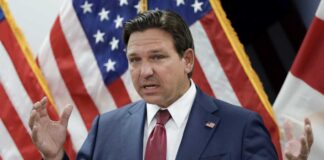 This Wednesday, Canada will become the second nation to explicitly legalize the social use, possession, cultivation, and retail production and sale of cannabis. The new law marks the culmination of an effort led by Prime Minister Justin Trudeau, who promised in 2015, shortly after taking office, to legalize and regulate the marijuana market.
This Wednesday, Canada will become the second nation to explicitly legalize the social use, possession, cultivation, and retail production and sale of cannabis. The new law marks the culmination of an effort led by Prime Minister Justin Trudeau, who promised in 2015, shortly after taking office, to legalize and regulate the marijuana market.
But PM Trudeau was not always in favor of adult use legalization. In fact, for many years he opposed it. That was until he met face-to-face with NORML advocates in 2012.
Speaking with the Huffington Post in 2013, Trudeau acknowledged that he reversed his position after speaking with NORML members. “[Their] line of argument did a long way towards convincing me,” he admitted.
Five short years ago, Trudeau was not a fan of legalized pot. As he wandered around the 2012 Liberal policy convention in Ottawa — the same one in which a majority of party members voted in favour of legalization — Trudeau was a dissenting voice.
… By the end of 2012, a lot of things had changed for Trudeau — beyond his appearance. He had changed his mind about running for Liberal leader, officially launching his campaign in October, and he was also starting to see that legalization was better than the decriminalization option he’d long favoured.
Today, Trudeau and his advisers trace the shift to a meeting with two women in his office in November of that year, who armed him with some of the pro-legalization arguments that he’s still using today — now, as prime minister. The two women were Kelly Coulter and Andrea Matrosovs, then representing what was known as the women’s alliance of the National Organization for the Reform of Marijuana Laws (NORML).
Coulter, who now lives in Victoria, remembers the meeting well, and is heartened to hear that Trudeau traces his conversion to this encounter.
“I actually saw the ‘aha’ moment,” Coulter says. It had been an emotional meeting in Trudeau’s tiny Parliament Hill office; the three of them talked about their own personal experience with marijuana. Trudeau talked about his mother using pot, and his brother, Michel, who had been charged with possession not long before he died. (Trudeau has subsequently told the story publicly of how his father used connections to get the charges dropped so that his son didn’t have a criminal record.)
Coulter told Trudeau flatly that decriminalization would not keep gangs and organized crime out of the marijuana business. “Al Capone would have loved it if alcohol had only been decriminalized,” she said — a line she often used when talking to politicians.
“I saw the light go on in his eyes,” Coulter said. “He was seeing this as a politician, realizing ‘I can sell this,’ ” she recalled.
Trudeau could see how this argument would blunt Conservative attacks on him as being soft on crime; with legalization, he could simultaneously seem liberal about marijuana but conservative about gangs and criminals. It helped persuade Trudeau that legalization, would be the best way for the government to regulate its use and keep it safe, especially for kids.
The lesson here is clear. Never forget that change begins with a single step, and that significant policy reforms can be inspired by a single interaction with lawmakers. Or, as we like to say at NORML, “The more we’re talking about ending prohibition, the more we’re winning.”
Let’s keep the conversation going.











